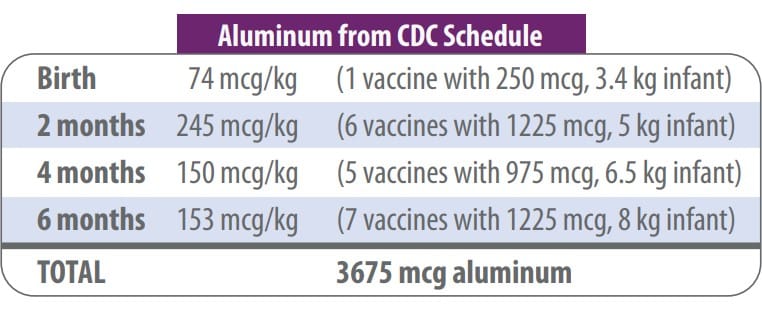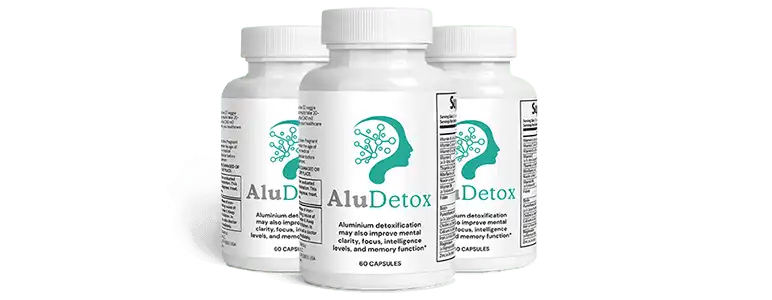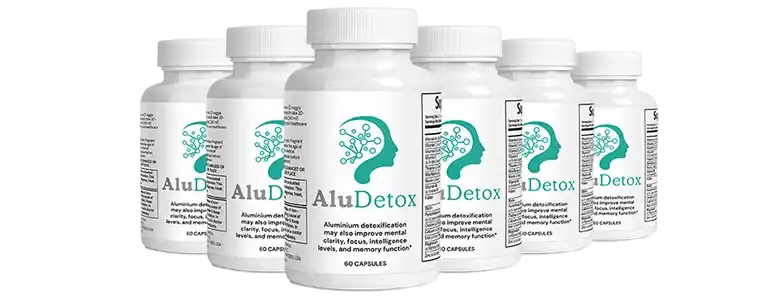

We have all seen the numbers: as of 2022, about 1 in 30 children aged 8 have been diagnosed with autism spectrum disorder (ASD). But autism is just one part of the picture. When we look at all neurodevelopmental disorders combined, the rate climbs to 1 in 6 children.
This surge isn’t happening in a time of poor healthcare—it’s unfolding now, in an era when medicine is more advanced than ever. Yet, our children are suffering more than ever before.
It is evident that a toxin interfering with normal brain development in children has appeared predominantly within the past 20 to 30 years, and the problem continues to intensify.
Many scientists have investigated and identified the neurotoxin responsible for autism and a range of other neurological disorders. Their findings are both groundbreaking and deeply disturbing. One of them is Dr. Christopher Exley, globally acknowledged as the preeminent scientific authority on aluminum and its impact on biological systems. His team of scientists from the Bioinorganic Chemistry Laboratory at Keele University studied the brain tissue of individuals with autism.
They found extremely high levels of aluminum—higher than ever previously recorded in any human tissue. Even more concerning, the aluminum was located inside brain cells—neurons and glial cells—where it could do the most harm.
In the 1970s, aluminum first gained attention as a neurotoxic substance when it was discovered in brain studies of individuals with neurological disorders.
By the 1980s, aluminum was linked to Alzheimer’s disease.
In 1997, the Agency for Toxic Substances and Disease Registry (ATSDR) in the U.S. officially listed aluminum as a neurotoxicant.
In 2007, the World Health Organization (WHO) and the European Food Safety Authority (EFSA) confirmed that aluminum can cross the blood-brain barrier and accumulate in the brain, leading to adverse neurological effects.
Unlike adults, children have a developing blood-brain barrier, which is a protective filter that prevents harmful substances from entering the brain. Because this barrier is still forming in early childhood, aluminum can more easily cross into the brain and accumulate in brain tissue.
Due to genetic factors, some children develop the blood-brain barrier later than others, or it takes longer for it to fully mature. As a result, these children are at a higher risk of developing autism when exposed to aluminum. This is why autism often appears repeatedly within the same families, leading many to believe it is purely a genetic disorder. However, this view is misleading. In reality, some families carry genetic traits that make their children more vulnerable to aluminum exposure during critical stages of brain development.

Aluminum adjuvants used in vaccines are not dissolved substances—they are solid particles, typically in the form of aluminum hydroxide or phosphate. Once injected, these particles are taken up by immune cells called macrophages and transported throughout the body, including into the brain. There, immune cells carry the aluminum across the blood-brain barrier, especially when levels of signaling molecules like MCP-1 (monocyte chemoattractant protein-1) are elevated.
Inside the brain, these aluminum particles can persist for years—even decades— because they are poorly soluble and resistant to breakdown. Their presence is recognized by microglia—the brain’s resident immune cells—as a form of cellular danger or “pathogen-associated molecular pattern” (PAMP). In response, microglia become permanently activated, releasing inflammatory cytokines—most notably, Interleukin-6 (IL-6).
Aluminum particles stimulate oxidative stress and trigger damage-associated molecular patterns (DAMPs), both of which are potent inducers of Interleukin-6 (IL-6) gene expression. Studies show that even low levels of aluminum exposure lead to a marked increase in IL-6 production in brain tissue, particularly in the hippocampus.
Elevated interleukin-6 (IL-6) disrupts neurodevelopment through several well-defined mechanisms that affect brain formation and function during critical periods:
Synaptogenesis: IL-6 promotes the formation of excitatory synapses while reducing inhibitory ones, leading to an excitatory/inhibitory (E/I) imbalance. This imbalance disrupts neural network stability—a hallmark feature of autism spectrum disorders.
Neuronal migration and adhesion: IL-6 alters the positioning and connectivity of neurons by interfering with guidance cues, thereby affecting the architecture of developing neural circuits.
Glial cell modulation: IL-6 influences the development of astrocytes and oligodendrocytes, impairing the support functions essential for healthy synapse formation and myelination.
Neuroplasticity and learning: Chronic elevation of IL-6 reduces long-term potentiation (LTP), a mechanism essential for learning and memory.
Experimental models demonstrate that elevated IL-6 during early brain development directly causes neurological abnormalities, including impaired social behavior, increased anxiety, and repetitive actions—hallmarks of autism spectrum disorders. When IL-6 signaling is blocked in these models, both the behavioral and structural brain changes are prevented or reversed. This clearly establishes IL-6 not just as a marker, but as a driving factor in neurodevelopmental disorders.
[Read More – How Aluminum Adjuvants in Vaccines Can Cause Autism]
Main Sources of Aluminum Exposure in Children
Maybe you’re thinking, “Okay, elderly people could build up aluminum over time. But children? How could such high levels show up so early in life?”
The answer is deeply troubling: vaccines and baby formulas.
As you already know, aluminum is used as an adjuvant in many childhood vaccines, but recent studies have also found dangerously high levels of aluminum in baby formula.
Watch Dr. Michelle Perro:
Don’t get us wrong—we are not against immunization. However, we strongly oppose vaccines that contain neurotoxic aluminum. Whether or not there is a genetic predisposition in the family for increased vulnerability to aluminum, we can never be certain if a child has developed their blood-brain barrier enough to prevent aluminum from entering the brain. Administering aluminum-containing vaccines to young children is a gamble—one that should not be taken.
We were not surprised when a 2013 study by Dr. Chris Shaw and Dr. Tomljenovic found that countries with the highest aluminum-containing vaccine schedules also had the highest rates of autism.
According to the CDC’s vaccination schedule, children are exposed to up to 3,675 micrograms of aluminum within the first six months of life, and up to 4,225 micrograms by 18 months. This aluminum is injected directly into the body, bypassing the digestive system and entering the bloodstream immediately.

How is it considered acceptable to inject thousands of micrograms of aluminum into a child who weighs only 5 to 20 kilograms?
The body is not even designed to eliminate aluminum. It has no natural mechanism to do so.
Doctors should not be blamed, as most of the doctors you see in clinics are not even educated about vaccines and their ingredients. They are required to follow official guidelines, and if they question vaccine ingredients, they risk having their medical license revoked. Additionally, they are paid bonuses for each vaccine they administer.
What kind of training do doctors receive on vaccines? – Watch this video:
Every vaccine sold often leads to repeat customers—not just from scheduled boosters, but also from the ongoing wave of treatments for chronic issues like autism, ADHD, autoimmune disorders, asthma, and other long-term conditions.
It seems that big pharmaceutical companies are not focused on finding cures but are more invested in managing symptoms indefinitely, ensuring a continuous demand for their products. The world’s most profitable industries are pharmaceuticals and weapons, and it’s no wonder we’re surrounded by illness and endless wars. Their influence appears to extend deeply into public health institutions, where dissenting voices are silenced, open dialogue is shut down, and funding for research that challenges the status quo is cut. Doctors and scientists who share concerning findings are often discredited and dismissed as conspiracy theorists—not through evidence-based rebuttals, but through reputational attacks and censorship.
Concerns like these often motivate people to look beyond mainstream discussions and explore questions about specific health risks. This has led some groups to focus closely on how the body handles certain substances, including aluminum.
It’s important to understand that aluminum cannot be eliminated using “heavy metal detox” supplements. These products are typically designed to target metals like lead or mercury and do not address aluminum, which requires a completely different approach for removal. In response, we assembled an incredible team and, over the past several years, dedicated ourselves to developing a real solution to aluminum toxicity and autism.
The result is our AluDetox formula — a carefully crafted blend of all-natural ingredients designed to safely and effectively remove aluminum from the brain and body. The good news is that the results have surpassed even our highest expectations.
In just four to six months of detoxification, we observed extraordinary transformations once aluminum was cleared. There were huge improvements in speech development, increased social engagement, enhanced eye contact, and stronger emotional connectivity. Behavioral patterns normalized, with significant reductions—or complete elimination—of meltdowns, aggression, and self-injurious behaviors. Sleep quality improved dramatically, and in 95% of cases, healthy neural development continued following detoxification.
Silica is the key ingredient in the formula due to its natural affinity for aluminum. When silica encounters aluminum, it binds to it and forms a compound called aluminosilicate.
Aluminosilicates are non-toxic and biologically inert, meaning they don’t react harmfully in the body. This transformation allows the aluminum to be safely processed and eliminated through the kidneys.
AluDetox also addresses neurological damage with ingredients like Phosphatidylserine, Bacopa Extract, and DHA (Docosahexaenoic Acid), which have been widely studied for their neuroprotective and regenerative properties. These ingredients support cognitive function and promote the repair of brain tissue affected by aluminum-induced oxidative stress.
Additionally, AluDetox restores essential vitamins and minerals that are often depleted as a consequence of aluminum exposure, helping to reestablish balance and strengthen overall health.
Important: AluDetox does NOT contain gluten, lactose, hormones or any mood-altering substances, and it has NO known adverse effects.
We may live in a cruel and toxic world, but that doesn’t mean we can’t fight for our health. Aluminum toxicity in the brain does not resolve on its own — in fact, its presence actively damages children’s developing brains.
Finally, we have the knowledge and the tools to remove aluminum from the brain and body and restore our children’s health.








